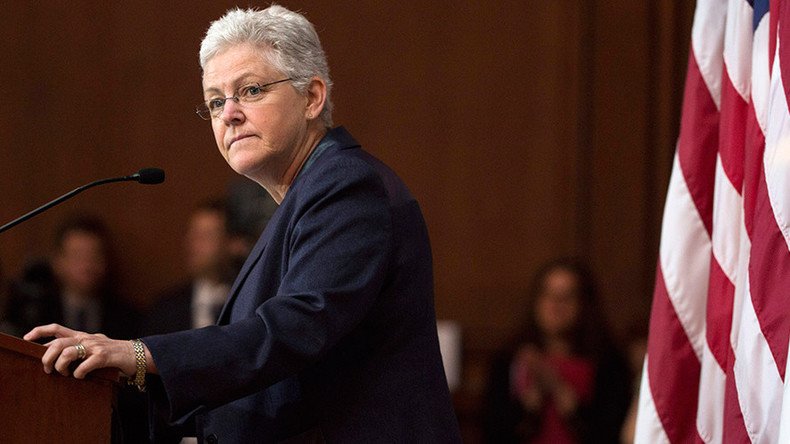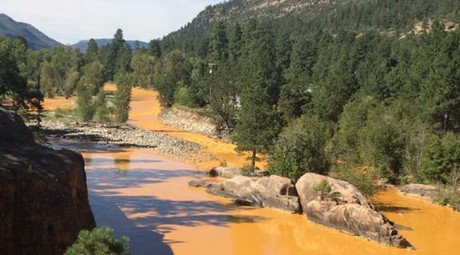EPA used 'covert propaganda' on social media to push water rule – watchdog

The social media campaign promoting EPA’s clean water rules violated the laws prohibiting federal agencies to engage in propaganda or lobbying, US government auditors said in a ruling with far-reaching implications for government communications.
Finalized this year, the “Waters of the United States” rules asserted federal authority over small waterways under the Clean Water Act. In face of the opposition from farmers, business groups and Republican lawmakers, the Environmental Protection Agency launched a social media blitz, using Twitter, Facebook, YouTube and a new platform called Thunderclap, to mobilize public support.
In doing so, the EPA broke the rules about grassroots lobbying and propaganda, the Government Accountability Office (GAO) said in a report, released Monday and signed by GAO general counsel Susan Poling.
No applause for EPA's Thunderclap: GAO rules #WOTUS social media improper https://t.co/sPZC98HdLk@ASWMCommunicate#wetlands
— Royal C. Gardner (@swamp_prof) December 15, 2015“EPA’s use of Thunderclap constituted covert propaganda, in violation of the publicity or propaganda prohibition,” wrote the GAO auditors, adding that the agency’s use of hyperlinks pointing to environmentalist groups also violated the grassroots lobbying ban.
The report describes two specific violations led the GAO auditors to accuse the EPA of wrongdoing. In September 2014, the agency used the social media tool called Thunderclap to reach out to around 1.8 million people, urging them to support the new rules by embedding the following statement in their social media posts:
“Clean water is important to me. I support EPA's efforts to protect it for my health, my family, and my community.”
The other case cited in the GAO report was an April 2015 blog post by EPA public affairs officer Travis Loop, on the agency’s official blog page. Loop wrote that he was a surfer and did not want to “get sick from pollution.” That phrase contained a hyperlink to the Surfrider Foundation, a California-based advocacy group supportive of the EPA rule.
Later on in the post, Loop linked to the Natural Resources Defense Council, another advocacy group. Because both groups engage in lobbying the lawmakers, EPA’s linking to their sites constituted a breach of lobbying laws, the auditors said.
Oklahoma Senator James Inhofe, the Republican chairing the Senate Committee on Environment and Public Works, said in a statement that the report was proof that EPA “will go to extreme lengths and even violate the law to promote its activist environmental agenda.” The GAO investigation was launched in June, at Inhofe’s request.
In a statement on Tuesday, the EPA denied any wrongdoing, but said it would comply with GAO’s reporting requirements, according to Fox News.
“We maintain that using social media to educate the public about our work is an integral part of our mission,” the agency said. “We use social media tools just like all organizations to stay connected and inform people across the country about our activities.”
The “Waters of the United States” rule became official at the end of June 2015, when it was published in the Federal Register. The EPA cannot enforce it yet, however, since a federal court has put it on hold pending legal challenge by 31 states and several business groups, according to The Hill. Republican lawmakers are also seeking to block funding for the rule’s implementation, as they negotiate with the Democrats over the government funding bill.
The man behind the EPA’s social media efforts has already been promoted, however. Thomas Reynolds, the agency’s former communications director, was appointed to a new post at the White House in early October and charged with promoting President Barack Obama’s climate change agenda.












